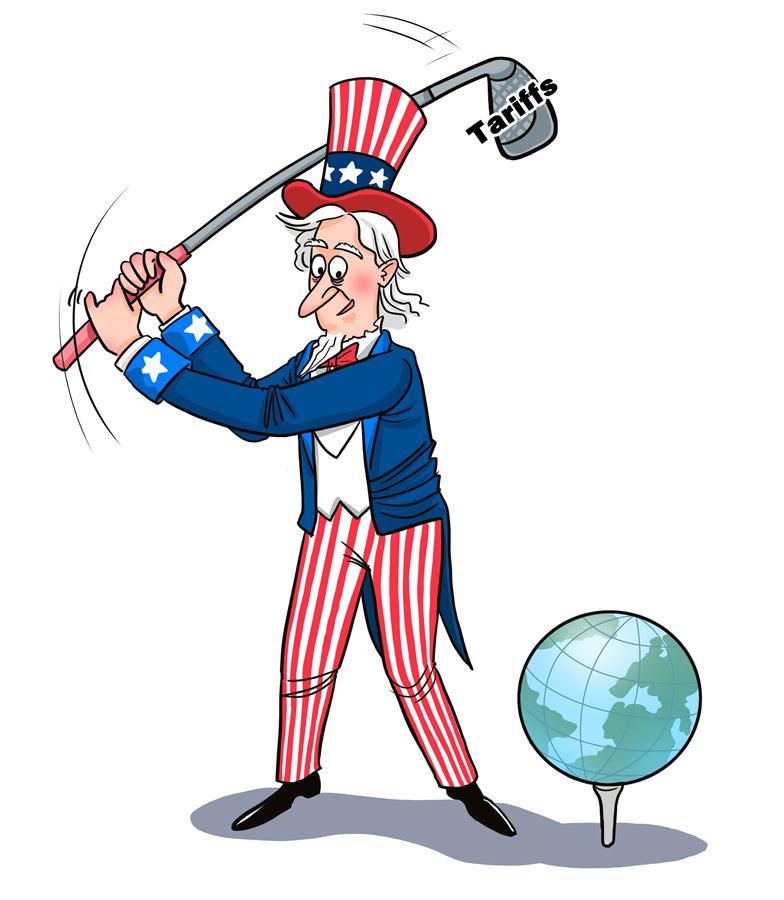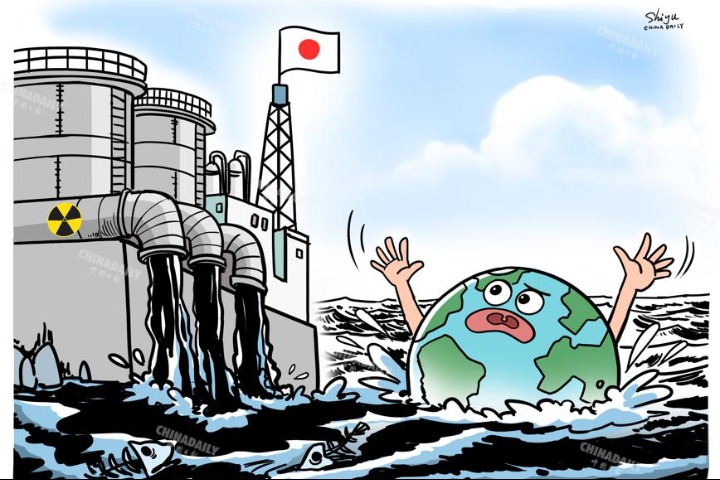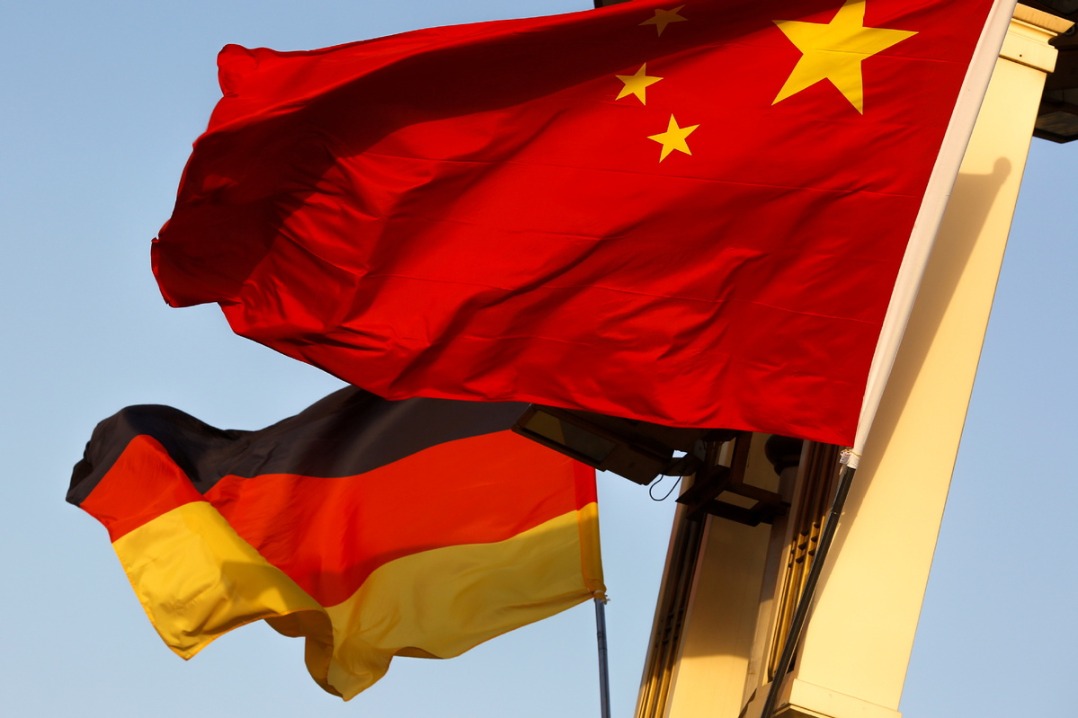US trade protectionism a triple curse


A series of rules and systems established to safeguard global trade operations lies at the core of the global trading system. It is this global trading system that is being threatened by the trade protectionist moves of the United States.
First, by advocating unilateralism and ignoring the World Trade Organization's dispute-settlement mechanism, the US is undermining the authority of the WTO and violating multilateral trading system rules. By giving precedence to its domestic laws over WTO rules, the US is trying to show it can ride roughshod over international regulations and slap tariffs on other countries' goods at will. And by continuing to block the appointment of new WTO judges, the US intends to render the WTO dispute-settlement mechanism powerless.
Second, the US' moves threaten to disrupt the open and inclusive regional trade arrangements that protect other countries' interests and indirectly promote multilateral trade liberalization. The regional trade agreements the US administration has inked or aims to ink are clearly in favor of the US and damage other countries' interests, as they carry the "poison pill" provision that constrains signatory states' free trade negotiations with other countries.
Third, the threatening approach the US administration has adopted in global trade to force other countries on their knees not only infringes upon these countries' interests but also violates the principle of equality and fairness. Apart from forcing other countries to accept coercive provisions in free trade talks, the US has also used the maximum pressure policy in trade talks and frequently imposed punitive tariffs on imports to browbeat other countries. This runs counter to the principles of equality and fairness the US administration claims to pursue.
Protectionism slows down global economic growth
US protectionism will drag down global economic growth, because it is harmful to international trade and investment. In fact, the US administration's protectionist measures suppressed the momentum of trade growth last year.
The US' protectionist moves will exert negative influence on exports of $439.5 billion worth of goods, which account for about 2.48 percent of the total global exports of goods. Assuming that the price elasticity of trade is 2.47 and the 25 percent tariff will be reflected in a 25 percent rise in product price, the global trade in goods will decline by 1.53 percentage points thanks to the trade frictions.
The impact of trade disputes, especially the Sino-US trade dispute, on global trade became evident in November 2018, which registered an actual growth rate of 0.88 percent compared with 5.60 percent in October, and further fell to minus 1.50 percent in December. That global trade grew by 0.06 and minus 1.06 percent in the first two months of this year shows that trade protectionism will continue to harm global growth.
According to a study jointly conducted by the Federal Reserve Bank of Atlanta, Stanford University and the Booth School of Business of the University of Chicago, 25 percent industrial enterprises and 30 percent manufacturing enterprises will change, re-evaluate, delay or give up their investment plans due to uncertainties created by trade disputes. Judging by the reports of international institutions such as the WTO, International Monetary Fund, Barclays Capital, Standard& Poor's and the Bank of England, trade protectionism will reduce world economic growth by 1.14 percentage points.
Drag on economic globalization
Based on trade, investment, finance and labor mobility, economic globalization helps countries better integrate with the world economy and brings them benefits. In the first dozen years of this century, economic globalization gathered pace thanks to China's accession to the WTO in 2001. But the US administration's protectionist policies have stalled the world trade body's further development.
By imposing punitive tariffs on imports, the US will impede the development of global trade and investment. Besides, the US' sanctions on Iran and its attitude toward immigrants will prevent the global financial sector's development and the global flow of labor. As the world's largest economy, the US should have promoted economic globalization. Yet it has introduced policies that run counter to globalization because it cannot resolve its domestic issues.
Since the US' unilateral and protectionist moves can cause severe damage to the global economy, the globalization process is set to suffer.
The author is an associate fellow and deputy head of the Department of International Trade at the Institute of World Economics and Politics, Chinese Academy of Social Sciences. The views don't necessarily represent those of China Daily.









































